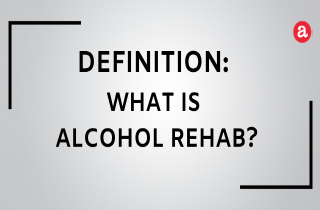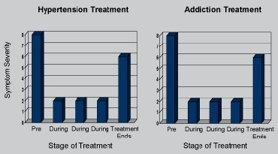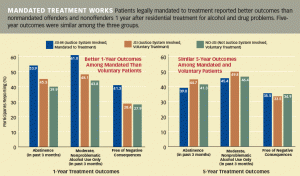FAQs – ALCOHOL REHAB
ARTICLE OVERVIEW: Most people with a drinking problem can benefit from time in an alcohol rehab. Learn about who benefits most from inpatient vs. outpatient programs. Plus, more on what to expect during the process. Finally, we answer particular questions related to privacy, cost, and efficacy. Your additional questions are welcomed at the end.
TABLE OF CONTENTS
- What Is Rehab?
- Why Do People Need Rehab?
- Is Privacy Guaranteed?
- Is It Effective?
- Average Costs
- How Can I Pay?
- What to Expect
- Is It for Me?
- Kind of Rehabs
- Are There Faith-Based Rehabs?
- What To Look For?
- The Selection Process
- How Can I Make The Best Of It?
More Questions?
Q: WHAT IS REHAB?
A: Rehab is the process of treatment and recovery from drinking problems.
Specifically, alcohol rehab is a treatment process/protocol used when a person who has used alcohol excessively or abused alcohol discontinues their use with the goal of remaining permanently abstinent. The National Institute on Alcohol Abuse and Alcoholism defines a drinking problem as:
Women:
- More than 1 drink per day.
- More than 7 drinks per week
- More than 3 drinks on any single day.
Men:
- More than 2 drinks per day.
- More than 14 drinks per week.
- More than 4 drinks on any single day.
The treatment process usually includes detoxification, psychotherapy, medications and maintenance of sobriety. Medications like naltrexone, acamprosate, and disulfiram can be used as treatments and are especially helpful when combined with psychological and behavioral therapies. A comprehensive strategy and relapse prevention plan is strongly recommended for continued sobriety.
More Addiction Blog articles on rehab for alcoholism here:
- What is alcohol rehab?
- What is alcohol rehab like?
- Alcohol addiction rehab treatment: What to expect?
- Alcohol abuse rehab centers: What’s the process like?
- Rehab facilities for alcoholism: 5 MUST HAVES
- Alcohol rehab treatment centers: What’s included?
Q: WHY DO PEOPLE NEED REHAB?
A: The main goal of any rehab is to help people with drinking problems stop drinking.
In addition to understanding models of alcoholism, rehab also provides them with the knowledge and tools they need stop drinking.
The numbers of people who may need treatment for alcohol disorder are significant. According to the National Survey on Drug Abuse and Health, there are 15.1 million people aged 12 or older who had an alcohol use disorder in 2016, which makes about 1 in 18 people had a drinking problem. Moreover, the same report shows that an estimated 21 million people aged 12 or older needed addiction treatment for alcohol and/or drug abuse in 2016. And according to the Centers for Disease Control and Prevention an estimated 88,0008 people (approximately 62,000 men and 26,000 women8) die from alcohol-related causes annually.
Q: IS PRIVACY GUARANTEED?
A: From a medical standpoint, your medical records remain private unless court ordered otherwise.
Your personal privacy in seeking treatment at rehab centers is protected under the federal Health Insurance Portability and Accountability Act (HIPPA) of 1986 and Alcohol and Drug Abuse Patient Records Privacy Law. Both laws protect:
- Conversations that doctors have with colleagues about the patient.
- The billing information.
- The client’s health electronic records.
- The health information about the patient.
- The information in medical records.
While staff are usually contracted under confidentiality law, you usually cannot have a guarantee of complete privacy or anonymity unless you seek out a clinic that specializes in privacy. If you fear that your privacy may be at risk, it is better to enroll into a private alcohol rehab.
Q: IS REHAB EFFECTIVE?
A: YES!
Rehab programs that use evidence-based strategies for alcoholism are effective. This NIAAA pamphlet states that:
Research shows that about one-third of people who are treated for alcohol problems have no further symptoms 1 year later. Many others substantially reduce their drinking and report fewer alcohol-related problems.
The goal of a reputable rehab program is to help patients overcome their drinking problems, and restart their lives without alcohol. In fact, rehab is considered to be effective if an individual is able to finish the program and stay sober.
The person who succeeds in rehab is the one who wants to. In fact, the most successful people are those who are ready and eager for change. There are many ways to make a stay in treatment more successful. For instance, you might choose an inpatient program over an outpatient program in order to look at the issue intensely. Or, you might involve your family in your treatment, especially during the Family Weekends or family programming components of the program.
Moreover, NIDA informs that addiction relapse rates resemble those of other chronic diseases including asthma, diabetes, and hypertension. This falls into 40-60% range. Relapse is not a failure, it is a chance refine your treatment plan. Successful addiction treatment requires constant evaluation and modification.
This NIDA graph illustrates how good treatment for alcohol addiction mirrors treatment for hypertension.
Furthermore, this National Institute on Drug Abuse review shows that motivation does not necessary need to come from inside. Sometimes mandatory court-ordered treatment can be just as effective as voluntary enrollment in a treatment program.
More reading on Addiction Blog articles regarding treatment effectiveness here:
Q: WHAT’S THE AVERAGE COST?
A: Rehab costs are based on the services you receive. Inpatient programs are more expensive because they offer constant medical care and residential services. Outpatient costs are typically less expensive.
The average costs of treatment for alcoholism are:
- Counseling therapy: $50- $150+ per hour.
- Detox program: $6-12K per treatment episode.
- Outpatient program: $100-$150 per day.
- Inpatient program: $500-$700 per day.
Still, rehabilitation programs can range in price dramatically. The cost is dependent on a variety of things, such as whether the rehab is an inpatient or outpatient facility, if the program provides certain amenities, and what the program provides as far as detoxification and rehabilitation services.
Some low-cost rehab options may charge as little as $7.5K per month, whereas high-end luxury programs can cost as much as $120K. A good amount of evidence-based, high-quality options exist in the $18 to $35K per month range.
There are four main factors that will affect the cost of any rehab program.
1. Amenities provided. The amenities of a program can include anything from animal therapy to massage therapy to professional chefs. High-end programs also tend to offer more alternative therapies that can aid the recovery process. Luxury programs are also more likely to offer patients private rooms whereas rooms are generally shared in low-cost options. You should ask the facility what amenities are included, since some programs charge extra for certain activities.
2. Length of the program. The length of the program also affects its overall cost. A short program could last for two weeks to 30 days, and would cost less than a program that lasts 90-days. In some cases, a stay of six (6) months or longer is recommended.
3. Location. A rehab’s location is another factor in overall cost. Facilities located in desirable areas, such as beachfront locations, will generally come with higher price tags. Also, consider if you’ll be traveling to the facility. If so, you will need to consider airfare or other transportation costs.
4. Type of program. Look at the type of program offered. Inpatient programs will cost more than outpatient programs because they require patients to live at the facility and have medical care available during all hours of operation.
Q: HOW CAN I PAY?
A: Many insurance plans cover the costs of rehabilitation.
Paying for rehab can seem overwhelming, but many insurance plans cover some of the cost of rehab. If insurance does not cover enough and you cannot afford the rest of the bill, many centers offer financing options. Alternative options when paying for rehab include:
- Employer Assistance Programs.
- Federal SAMHSA vouchers for treatment.
- Scholarships.
- Sliding scale payment.
Call your State’s Department of Health and Social Services for more information on treatment vouchers in your state. Call until you speak with someone personally!
Let’s verify your coverage for treatment at an American Addiction Centers location. Your information is kept 100% confidential.
Q: WHAT CAN YOU EXPECT?
A: There are six basic phases of alcohol treatment.
“Rehab” usually refers to inpatient treatment settings. Inpatient rehab generally takes about 28-30 days to complete, although programs can last from 3-6 months. Each stage of the program build upon earlier stages. Completion is strongly advised, and leads to more successful outcomes and less frequent relapse.
The main stages of inpatient treatment include:
1. Alcohol dependence assessment.
Before you start with the program, you will need to complete the paper work, and assessment. Also, the trained staff will complete physical as well as psychological evaluation. This process will help the clinicians to plan the services for your treatment. Moreover, you may be asked to take a drug test, and if there is a need to address the withdrawal symptoms, nurses will obtain prescriptions from a physician.
2. Medical detox from alcohol.
Symptoms of alcohol withdrawal may be hard to manage. The detox process will provide constant medical intervention. It can last up to a week, or even a little longer.
3. Psychological treatment.
Psychological treatment will help you learn how to adopt a new, alcohol-free life. Moreover, you identify and address the roots of the addiction problem. Some of the most common therapies used in rehabs include:
- Behavioral Therapy
- Individual Therapy
- Group Therapy
- Family Therapy
4. Pharmacotherapy.
In order to treat alcohol dependence once and for all, you may need help with medicines. The most commonly used medication in alcohol treatment are:
Acamprosate: This medicine reduces symptoms of protracted withdrawal, such as insomnia, anxiety, restlessness, and dysphoria.
Antabuse (disulfiram): This medicine addresses alcohol withdrawal symptoms and can make a person sick if even a small amount of alcohol is consumed.
Naltrexone: This medicine blocks the rewarding effects of alcohol.
Barbiturates: This class of medication was widely used to manage withdrawal, but nowadays, it is replaced with the use of benzodiazepines.
Benzodiazepines: The treatment with benzodiazepines the most common regimen for addressing alcohol withdrawal symptoms. Usually, the protocol includes 3 days of long-acting benzo intake on a fixed schedule. Ativan (lorazepam), Valium (diazepam), and Librium (chlordiazepoxide) are the most used benzodiazepines in the treatment of alcohol withdrawal and dependence.
5. Education.
During this stage of rehab, patients will learn how addiction changes their brain function and look at the negative consequences of drinking. Also, people learn how to live without alcohol, how to cope with stress, and how to avoid relapse.
6. Aftercare services.
The following supportive services help you maintain sobriety in the month and years after you leave a rehab clinics. They may include:
- Coaching
- Counseling
- Living in a halfway or 3/4 way house
- Mentoring
- Support Groups
On the other hand, outpatient programs are usually less intensive and last for around ten (10) weeks, with at least 2-3 meetings per week. The plus side is that outpatient alcohol programs can be much less expensive than inpatient treatment. Outpatient rehab usually follows a similar stage and “Step-down” in services…only they don’t have detox facilities.
Q: IS REHAB FOR ME?
A: Rehab benefits people who are problem drinkers and want to get better.
Keep in mind, though, that people who need to go to rehab may be in denial of their drinking problem. They will often only consider treatment when their loved ones stage an intervention, they get into legal trouble because of their drinking, or they hit rock bottom. Still, many recovering alcoholics find that they ignored these signs until it was too late.
Below are some of the most common signs that someone needs professional help.
- Hiding drinking and alcohol use.
- Inability to quit drinking, despite the problems it causes.
- Finding excuses to drink.
- Physical dependence on alcohol, often accompanied by high alcohol tolerance.
- Problems resulting from alcohol use (family, career, legal, health).
If you meet some of these criteria, seek help from an addiction professional to diagnose your addiction. Most of these professionals use screening tools and questionnaires such as:
Further, rehab can benefit drinkers who:
1. Have already tried quitting on their own (with no success).
2. Can benefit from a change of scene.
3. Are ready and willing to change behavior.
Q: WHAT KIND OF REHABS ARE THERE?
A: The two types of rehabs that treat alcoholism are inpatient and outpatient rehabs.
Inpatient rehabs require that you live reside at the facility for a period of time. This type of treatment can benefit people who need to get away from home environments and concentrate on learning how to cope without alcohol. However, this type of rehab can be significantly more expensive than outpatient programs. Rehab usually lasts for 28 days, but may be extended up to a few months or a year, preferably followed by after-care treatment sessions.
Outpatient rehabs do not accommodate patients. In other words, you don’t live at the facility, you come for treatment for a few hours a day, several days per week. This program is recommended for individuals with mild drinking problems. Moreover, it is flexible because it allows you to keep your daily obligations.
Q: ARE THERE FAITH-BASED REHABS?
A: Yes.
Some rehabs specialize in specific spiritual or religious practices. You can search the SAMHSA treatment directory or speak with leaders in your spiritual community to find a treatment center that is right for you.
Q: WHAT TO LOOK FOR?
A: Anonymity, medical license, social support, and duration of stay according to your needs.
Rehabs exist to provide you with a safe (but challenging) environment where you can commit to the rehabilitation process. What should be in place before you sign up and attend? Here are our top suggestions for what to look for in a reputable rehab program.
1. Anonymity. First, know that confidentiality is a bottom line necessity. In all centers privacy is guaranteed, so you don’t have to worry that anyone will find out about your treatment.
2. Medical license. Be sure that the rehab is licensed and that their clinical staff are credentialed before signing up. Reputable rehabs operate and run programs based on scientifically evidenced practice. Psychotherapy and behavioral therapy form the foundation of treatment. This is why medical and psychological evaluation occurs throughout treatment. The detoxification process is also a medical intervention. Throughout the process you can expect to explore your inner world, take medications if necessary, and relax.
3. Social support. Group therapy is an essential part of treatment. This treatment modality helps patients from isolation during treatment and stimulates support and compassion. Having a roommate during a stay in an inpatient center is obligatory in many centers.
4. Time to get sober. Rehabilitation process can last for 30, 60 or 90 days, where 30 is the minimum time for treatment to be effective. You typically benefit more from a longer stay than a shorter one, especially in cases of more serious drinking problems.
Q: HOW TO CHOOSE THE BEST REHAB?
A: A tailor-maid rehab is always the best choice.
Choosing between centers can be difficult. It is important to find a clinic at which you feel comfortable. Many clinics offer specialized care for certain religions, age, genders or other groups. So, how do you sort through your options? Basically, ask for help and referrals.
To find addiction specialists and alcohol rehabs in your area, you can:
- Talk to your doctor.
- Seek referral from a local mental health clinic or hospital.
- Seek referral from a community health centers.
- Seek referrals from friends or trusted leaders.
- Search the American Psychological Association provider database.
- Search the national SAMHSA treatment directory.
- Search the Directory of Single State Agencies (SSA) for Substance Abuse Services.
- Contact your health insurance company.
- Find out if your workplace offers mental health programs.
Furthermore, there are lots of treatment methods currently available, thanks to significant advances in the field of addiction treatment over the past 60 years. Ultimately, there is no one-size-fits-all solution, and what may work for one person may not be a good fit for someone else.
So, what do you look for when choosing a rehab? Simply understanding the different options can be an important first step. Also, a custom rehab program is ideal for lasting recovery. The main types of treatment currently used to treat alcohol addiction include:
Psychological and Behavioral Treatments. This type of treatment aims to change drinking behavior through counseling. Group or individual therapy sessions are led by health professionals and supported by studies showing they can be beneficial.
Medications. Three main medications are currently approved in the United States to help people stop or reduce their drinking and prevent relapse. They include acamprosate, disulfiram, and naltrexone. These meds are prescribed by a primary care physician or other health professional and may be used alone or in combination with counseling.
Support Groups. Alcoholics Anonymous (AA), SMART Recovery, or other similar programs provide peer support for people quitting or cutting back on their drinking. Combined with treatment led by health professionals, mutual-support groups can offer a valuable added layer of support.
Q: HOW CAN I MAKE THE BEST OF IT?
A: The final outcome will mostly depend on you. If you’re committed to change, take suggestions, and follow your treatment plan…you’re making the best of your time!
Commitment is especially important for a successful experience in rehab. Getting educated about addiction can help motivate you and ease your thoughts when choosing the best therapy for you. You can even start preparing for a sober lifestyle by detecting which thoughts or actions trigger cravings.
Before choosing a rehab, you should define what you expect from it. Many people find that outpatient centers can help support a sober life at home. Others may want to get away from the triggers around them at home and start fresh with the help of an inpatient clinic. Possible treatment goals you can commit to include:
- Identify and work to resolve psycho-emotional issues.
- Be dedicated to the process.
- Be motivated to change.
- Participate actively and share in support groups.
- Use all available resources to make progress.
Keep in mind that treatment does not end after leaving a rehab center. You need to create a plan with activities that will support your alcohol recovery. Some people choose to continue with individual therapy or to attend support groups as effective ways to continue self-development. It is also important to build up the areas in your life that were neglected by your drinking. Find a hobby or reach out to others. These actions will show your commitment and care, which can bring extra support and help you maintain a sober life.
No matter where you start, you need to know that it is never too late to get control of addiction. Beating an addiction to alcohol could be the most important thing you do in your life. Facing alcohol problems will help you to be a better spouse, parent, friend and person.
If you are truly ready for treatment and ready to stop drinking, rehab can be very successful. Otherwise, when trying to get sober on your own, there’s a good chance that you can fail.
More Questions?
If you some have any unanswered questions, feel free to post them in the comments section below.












Related Posts